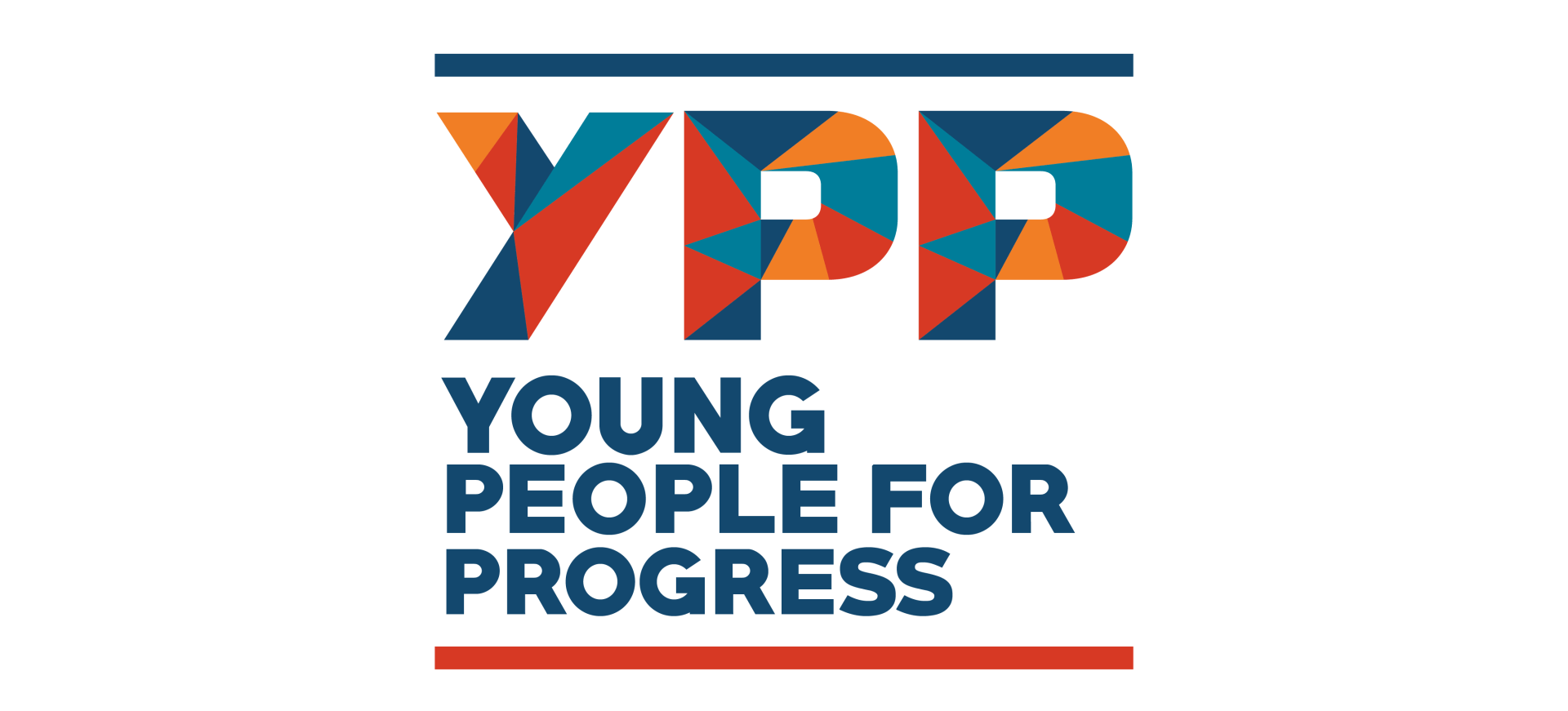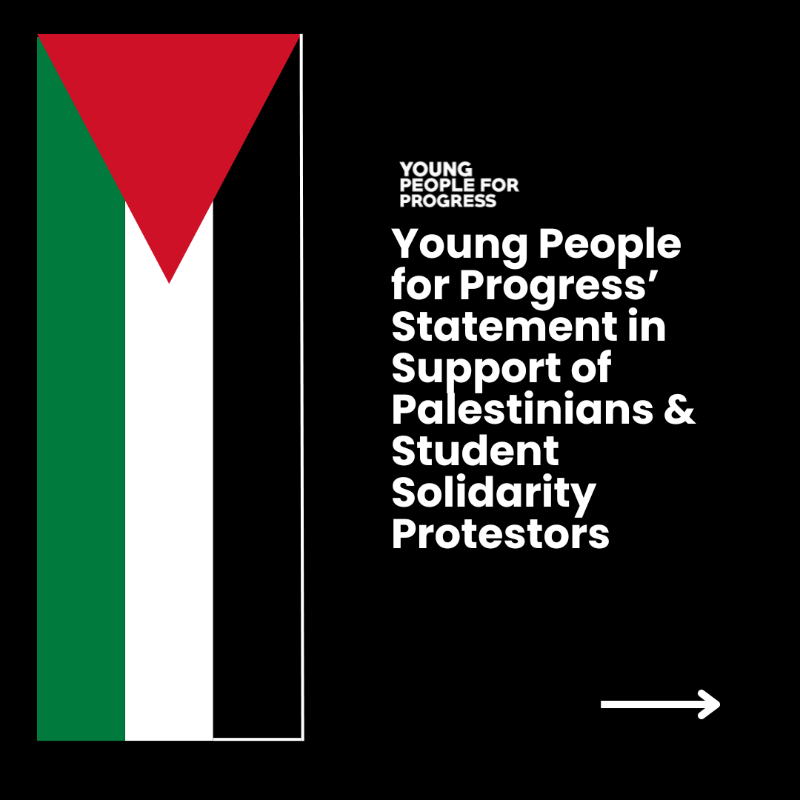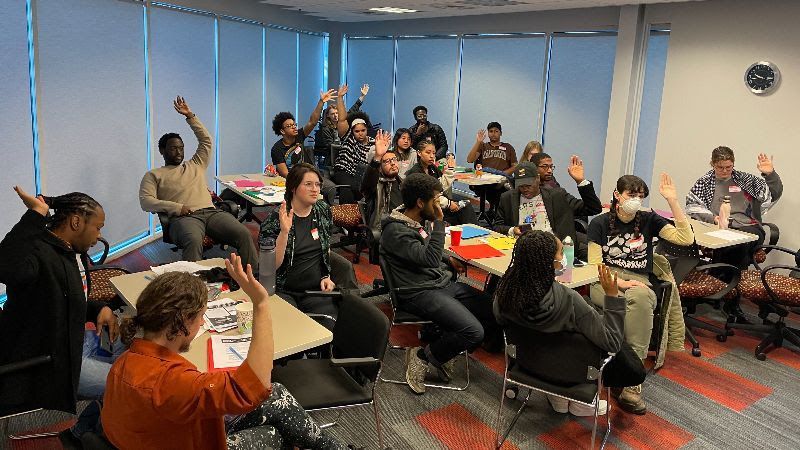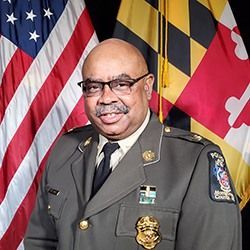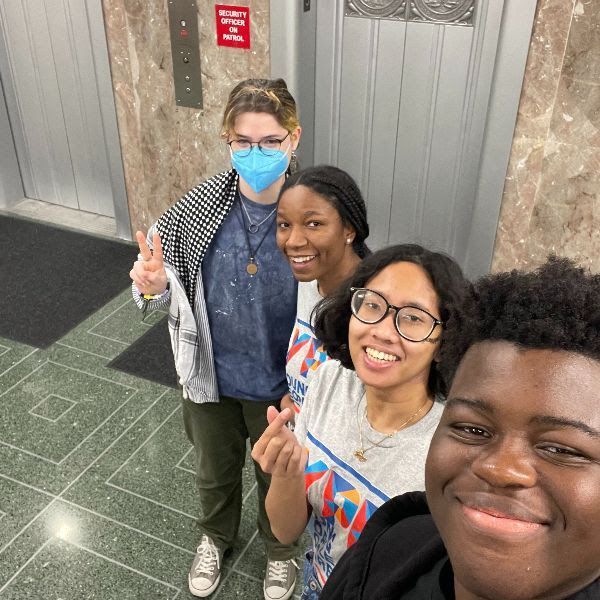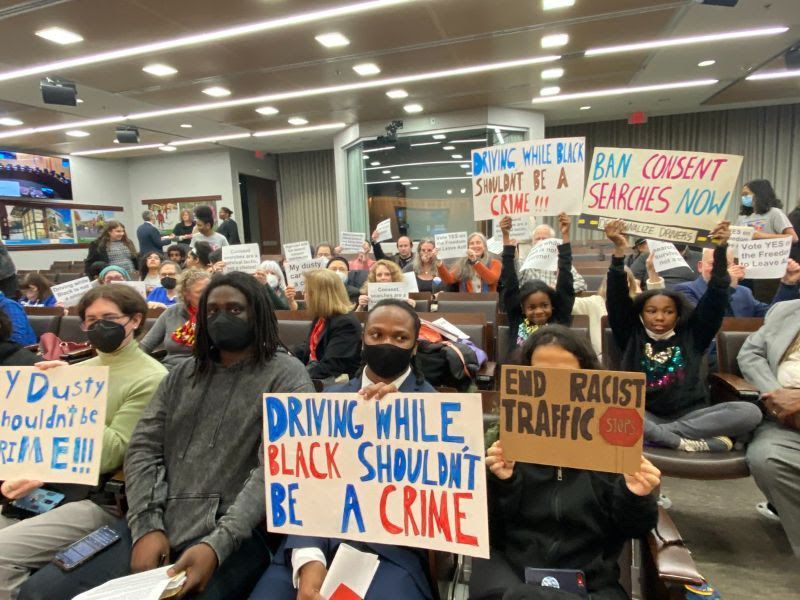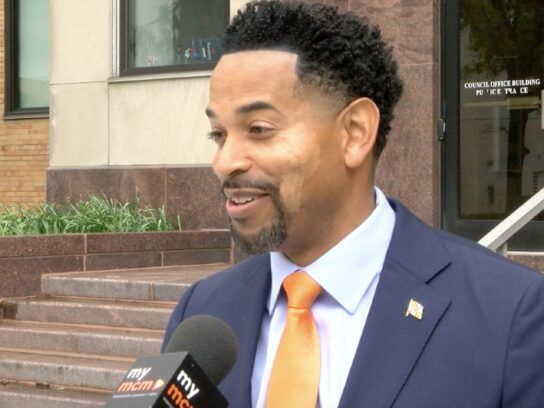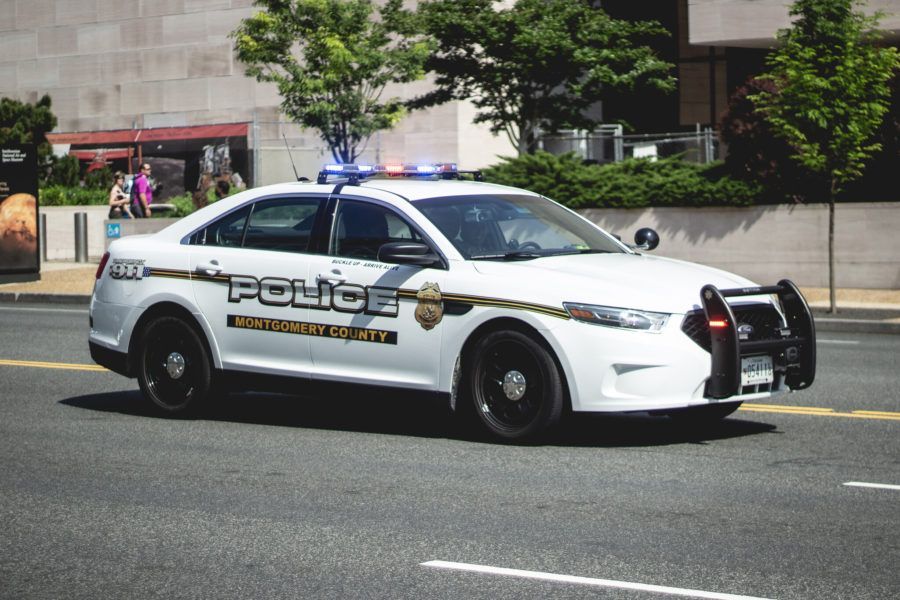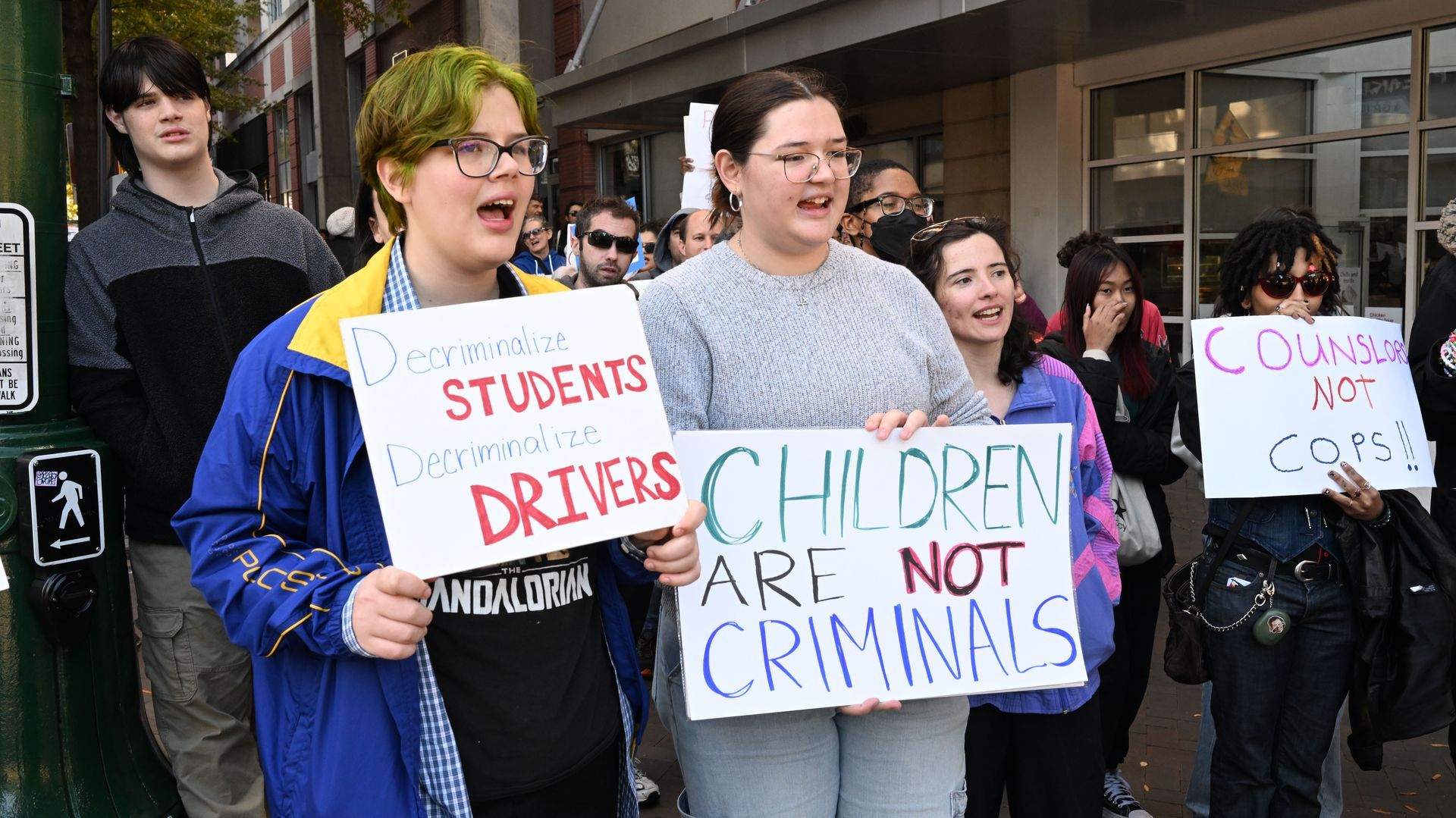Rachel Sieradzki • August 25, 2020
YPVoices: Collective Organizing is Essential for the Survival of Communities
An Interview with Danielle Blocker, YPP President.
Rachel: What was the first thing, like the catalyst that got you into organizing and activism?
Danielle:
That is a good question. I’m not sure if there was one particular thing, or like one event at any moment, but I think gradually, I came to appreciate that organizing and applying collective pressure is necessary to make any needed changes or improvements.
Rachel:
Was there any current event that made you feel that in particular?
Danielle:
I think studying policy in college in some ways pushed me towards that. For a while maybe as a child and youth, I just assumed that certain social problems existed because we didn’t have solutions for them, and if we just find a solution then we’ll use it and things will be fixed. It wasn’t until I started learning a little bit more about some policy that I realized that we already have solutions for many of our biggest social problems, and have for a very long time had them. But the reason those solutions aren’t implemented often, isn’t because they don’t exist but because there’s not enough political and public will to do them. And even if you have the answers, if you can’t create political will and political power, having the answers doesn’t mean much. I wanted to learn how we can become good at organizing just to create the will to implement the answers that we already have. Because there are a lot of things that we don’t know the answers to, but here are so many that we do. If we could just create that will and implement those first, how much better off we would be.
Danielle:
That being said, education was a big place where I saw that. I studied education in school, I thought I was going to be a teacher; and in education I realized that we’ve had a lot of answers to education problems, particularly educational inequity, since the 60’s. Since the Kennedy Administration. The United States has produced the most education research in the world, and other countries across the world have used the research from the United States to improve and equalize their school systems. But still, decades later the United States is paces behind because they will not implement their own research.
Danielle:
So anyway, I say all that to say, the biggest achievements to equality in education were created in 1965, through the Elementary and Secondary Education Act of 1965. That created Title I schools, giving money and resources to impoverished schools, set a lot of standards, and did a lot of things. It was sweeping. Every new education bill that comes up is just the government modifying the Elementary and Secondary Education Act. So, every few years they renew the Elementary and Secondary Education Act, that sweeping act that was made in 1965. They may call it different things each time, like when they renewed it under the Bush Administration they called it No Child Left Behind and made some changes, and the Obama Administration called it Race to the Top and made some changes, but what they’re really changing is a big thing that was created in 1965 and was a result of a huge mass movement, the Civil Rights Movement.
Danielle:
So many of the huge sweeping laws that changed institutions happened as a direct result of the Civil Rights Movement. And we haven’t had a group of laws that has equalized things as much, since – because we haven’t had a movement since, right? So in the 1960s, we had the Civil Rights Act of 1964, which desegregated everything. And then in 1965 the Voting Rights Act took away poll taxes, and literacy tests and a lot of things to make it accessible for people to vote. And then in that same year, 1965, they also passed the Elementary and Secondary Education Act to equalize schools and they passed the Fair Housing Act in 1968, a few years later. All those things, education, housing, the war on poverty, voting, desegregation – we can thank the Civil Rights mass movement for all of those things. To make sweeping policy changes that drastically improve the lives of everyday people, you need movements. You need to know not just how to find the best solutions, but how to create the political will to make them happen.
Danielle:
So I saw that in my studies and simultaneously I saw that in where I was living, Ferguson, at the time. That without your community being able to organize it’s hard to ensure that you can keep them safe, or keep yourself safe. The ability to have power as a community is so closely linked to your ability to survive and thrive. If you can’t organize well as a community, you can’t keep your son, Mike Brown
in this example, from being shot and killed in the middle of the street as he’s walking to his grandma’s house. Or Finan Berhe, or Robert White. If you don’t have political power when people in your community are killed, there’s less that you can do about it. So political power and agency isn’t just a matter of idealism and making the world a better place, though those things are important. It is very much a matter of survival. If you don’t have political power, you won’t be able to keep yourself and your family from being shot in the street, for example.
Danielle:
Seeing that I became very interested in, okay how do we create the power and the pressure so that we can not only protect ourselves and our loved ones, but make sure we live in a better, more fair, more just society.
Rachel:
How do we get that kind of power in a society that tries to deny it to its citizens?
Danielle:
Well, I’d say a lot of ways. We all have to participate in some way. By that I mean we all have to work with each other. I individually, as Danielle Blocker, I’m just one person. I’m not independently rich or anything. And you might not have all that much influence or might as Rachel Sieradzki. But when we work together, in groups we have more power and we can win more than any one of us can do alone.
And that is the power of collective organizing in and of itself.
Rachel:
Have you seen this power of group togetherness in action and if so, what does it look like?
Danielle:
Oh yes! I’ve seen it on how we got seats on the Policing Advisory Commission for youth and young adults in Montgomery County. I see it in us all protesting enough to actually have policing reforms passed in Montgomery County, like the expansion of Montgomery County’s mobile crisis unit, to have mental health professionals and social workers respond to mental health crises instead of police, and expand that. And also, in this moment of the Black Lives Matter movement and the protests after the deaths of George Floyd and others, people are winning because they are using the power in numbers to make a substantial change.
Rachel:
If someone wasn’t involved and was angry at some injustice and wanted to do something but didn’t know how, what would you advise them to do?
Danielle:
I would say, join a group, first thing. It’s a great place to start. Find people who are trying to do what you’re doing and see how you can support.
Rachel:
So tell me about Ferguson and why being there was so influential for you.
Danielle:
For me, it really clarified the importance of organizing and put it in life or death terms for me. If you can organize you can make sure you can survive. And if you can’t, you can’t.
That lesson of its importance is a really big one that I can’t unlearn. It was certainly an aha moment in my life.
Rachel:
Were there any particular examples from there that can illustrate this?
Danielle:
Well, in it I saw a lot of why many communities don’t win. Because I saw that movements are incredibly hard to sustain. They’re so much work and require so many resources. In Ferguson for example people protested every day, single day, for at least a year. And that alone was a lot of money. Some nights close to a hundred, maybe more, got arrested. To raise enough and get bail for all the people who got arrested was a whole operation in and of itself. That was expensive. People got injured during protests, got shot by rubber bullets, chemicals. People had hospital bills, people’s property was destroyed, people’s cars were set on fire. People took off work to protest every day. Some people lost their jobs because of taking off work to protest every day. People would pitch in to feed the protesters every day. People would come in from other parts of the city to protest, and people would coordinate and find them rooms and places to stay. All of that sustaining medical bills and injuries, bail money, jail support hotline so they can call to ask for bail money, legal observation and legal representation, food transportation. It takes a lot of money and a lot of resources to sustain something like that for a year.
Danielle:
So it really impressed upon me that our communities need to be able to raise money. Amongst ourselves. We need ownership of that money and we decide how we use it. Not only that, we need our own organizations that we own and run in order to sustain anything that would lead to substantive significant change. Because how are you going to manage all of that without an organization? You can’t. You need to have your organization before something goes down, so when it does, you’ll be ready.
Danielle:
You can even see that here in Montgomery County with the George Floyd protests. Because YPP already existed and had already been practicing, with a structure, looking into what’s been happening, there was a place for people to go who wanted information or wanted to know how to help. There was a place for people to direct energy, questions for us to organize for further things. And because of that we were more able to develop more effective demands. But if there is no organization when things like this happen and you have to create one out of nothing, it’s much more difficult. Some other new organizations that have just popped up now are finding this.
Danielle:
Some of the organizations that we’ve been working with, they’ve formed after having some protests and it’s great but they’re figuring out ok, now what’s happening around this issue in Montgomery County, how do we store information? Those logistical issues can be a lot. They’re taking their first steps. However, being in communication with us, with an organization that already exists, really helps them. We’re able to say hey, we’re in meetings with these decision makers, we’ve been able to set them up because we’ve been working on this, why don’t you come along. Oh, you need information on this, we already have the information, let us share that. Let us give you some tips on what worked for us and what didn’t. Oh, here’s this big mistake that we made, don’t make it. Level of organization is so important, even for new organizations.
Rachel:
That goes back to working together, doesn’t it?
Danielle:
Absolutely.
Rachel:
You mentioned before how survival is very much connected to political power. And also political power is in YPP’s mission statement, how we want to "provide political power to youth and young adults in Montgomery County." When you drafted that mission statement, were you thinking about survival or what was on your mind?
Danielle:
I was absolutely thinking about survival when I helped to write that mission statement with the initial organizing committee of YPP. We don’t just want to survive, we also want to thrive, and we want political power for that.
Rachel:
This is interesting to me, because I don’t think that people of color, especially Black folks, can look away from this at all. White people can look away and step back, they have the privilege to walk away and pretend it’s not happening. If you’re white and you’re doing that then you’re part of the problem. Because there are plenty of people who can’t and who have to face it every day. If there is anything else you’d want to tell people, especially privileged people, what would you want to say?
Danielle:
I would say it is not only about surviving but thriving. And many of us, privileged or not, don’t take action to change systems because to some degree we don’t really think it’s possible. We think that we can work really hard and even so not a lot will change so what’s the point in putting in the effort. To that I would say, we can change things. We are already doing it now. We have already shown that this works. And we just need more people to believe it and join us and we’ll be able to do more.
Rachel:
Like you said, it takes more people.
Danielle:
Exactly, we have to use our power in numbers.
Rachel:
Do you think that the realization you came to back in college about policy and structure has anything to do with what you do now?
Danielle:
Absolutely! I would say that applies just as much now, as it did when I was first understanding it some years ago. That applies just as much to work in Montgomery County as it does anywhere else. As it does in Vietnam, as it does in Samoa, as it does in Tanzania, anywhere. Humans are incredibly smart and we have the ability to solve any problems we want to.
The matter of wanting to do it and the matter of those people who want to being the same people as those who have the power to, is the big challenge.
Rachel:
Wow, what a powerful note to end on. Thank you, Danielle.
Danielle:
Thank you, Rachel.
